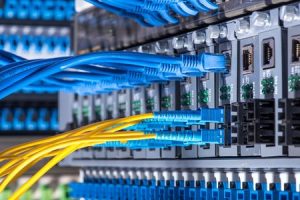
Computer Hardware for AI and Machine Learning Projects
Introduction
Artificial Intelligence (AI) and Machine Learning (ML) have become increasingly popular in today’s rapidly evolving technological landscape. These fields are fueled by advanced algorithms and vast amounts of data processing. However, to achieve optimal performance, it is essential to have cutting-edge computer hardware that can handle the computational demands of AI and ML projects. In this article, we will explore the hardware requirements and options available for these specialized projects.
Key Components
To embark on an AI or ML project, several key computer hardware components are crucial:
1. Processors (CPUs)
Central Processing Units (CPUs) are the brain of any computer, and for AI and ML projects, selecting a processor with high performance is vital. CPUs with multiple cores and high clock speeds can handle complex calculations efficiently. Popular choices for AI and ML include Intel Core i9, AMD Ryzen, and Intel Xeon processors.
2. Graphics Processing Units (GPUs)
Graphics Processing Units (GPUs) play a crucial role in accelerating AI and ML computations. They excel in parallel processing and are adept at handling large amounts of data simultaneously. GPUs leverage CUDA or OpenCL frameworks to accelerate neural network training and inference. Leading GPU brands like NVIDIA GeForce RTX and AMD Radeon deliver excellent performance for AI and ML workloads.
3. Random Access Memory (RAM)
RAM is essential for storing and accessing data while computing. For AI and ML projects, it’s recommended to have ample RAM to facilitate quick data processing. A minimum of 16GB is recommended, but for larger projects, 32GB or even 64GB can significantly enhance performance.
4. Storage Solutions
Data is a critical component of AI and ML projects, making efficient storage solutions essential. Solid State Drives (SSDs) are commonly preferred due to their faster read/write speeds compared to traditional Hard Disk Drives (HDDs). Additionally, cloud storage services such as Amazon S3, Microsoft Azure, and Google Cloud Platform provide scalable and reliable storage options for AI and ML projects.
Special Considerations
In addition to the key components mentioned above, there are a few other factors to consider when choosing hardware for AI and ML projects:
1. Cooling System
AI and ML workloads can put a significant strain on computer hardware, generating a substantial amount of heat. Ensuring a robust cooling system, such as adequate fans and heatsinks, is crucial to prevent thermal throttling and ensure consistent performance.
2. Power Supply
Power requirements for hardware used in AI and ML projects tend to be higher due to the demanding computational tasks. It is important to select a power supply unit (PSU) with sufficient wattage to handle the overall power consumption of the system.
3. Upgradability
AI and ML technologies are continually evolving, making it essential to plan for upgradeability. Opting for a motherboard that supports future hardware additions, such as additional RAM slots or multiple GPUs, can help extend the lifespan of the system.
Conclusion
Computer hardware plays a crucial role in the success of AI and ML projects. Choosing the right components, such as high-performance CPUs and GPUs, ample RAM, efficient storage solutions, and considering factors like cooling systems, power supply, and upgradability, can significantly impact the efficiency and effectiveness of AI and ML workloads. By investing in the right hardware, professionals and enthusiasts can unleash the true potential of AI and ML, opening doors to groundbreaking discoveries and innovations.


